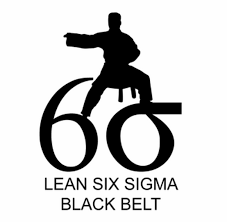Course Details
Your Growth, Our Mission

Course Description
The Training Course Will Highlight ?
This course is complying with the requirements of the International Association for Six-Sigma Certification.
Tools Used
Excel 2013 and Minitab 16
Book Reference
Introduction to Materials Management - 6th edition - 2008 - J. R. Tony Arnold, Stephen N. Chapman and Lloyd M. Clive - Prentice Hall
How to Implement Lean Manufacturing - 2010 - Lonnie Wilson - McGraw-Hill
Implementing Six Sigma - 2nd Edition - 2003 - Forrest W. Breyfogle Iii - John Wiley & Sons
Learning To See - Version 1.2 - 1999 - Mike Rother And John Shook - Lean Enterprise Institute
Six Sigma Quality Improvement with Minitab - 2nd edition - 2011 - G. Robin Henderson - John Wiley & Sons
Benefits of Attendees:
- Supply base and material management
- Information and technology sharing
- Benchmarking
- Balance scorecard
- Traditional management vs. Six sigma management
- Six sigma benefits to an organization
- More on DMAIC Methodology
Training Objective
This course is complying with the requirements of the International Association for Six-Sigma Certification.
Tools Used
Excel 2013 and Minitab 16
Book Reference
Introduction to Materials Management - 6th edition - 2008 - J. R. Tony Arnold, Stephen N. Chapman and Lloyd M. Clive - Prentice Hall
How to Implement Lean Manufacturing - 2010 - Lonnie Wilson - McGraw-Hill
Implementing Six Sigma - 2nd Edition - 2003 - Forrest W. Breyfogle Iii - John Wiley & Sons
Learning To See - Version 1.2 - 1999 - Mike Rother And John Shook - Lean Enterprise Institute
Six Sigma Quality Improvement with Minitab - 2nd edition - 2011 - G. Robin Henderson - John Wiley & Sons
Benefits of Attendees:
- Supply base and material management
- Information and technology sharing
- Benchmarking
- Balance scorecard
- Traditional management vs. Six sigma management
- Six sigma benefits to an organization
- More on DMAIC Methodology
Target Audience
- Senior Managers & Team Leaders
- Project Managers
- Quality Assurance Professionals
- Software Professionals
Training Methods
This interactive Training will be highly interactive, with opportunities to advance your opinions and ideas and will include;
- Lectures
- Workshop & Work Presentation
- Case Studies and Practical Exercise
- Videos and General Discussions
Daily Agenda
- Why Six Sigma?
- Definition of Six Sigma
- Comparisons between typical TQM and Six Sigma Programs
- Origins and Success Stories
- How to Deploy Six Sigma
- Organizational Metrics and Dashboards
- Data-driven Decision Making
- Description of the Roles and Responsibilities
- Leadership Responsibilities
DEFINE: Project Definition
- Tasks
- B. Work Breakdown Structure
- C. Pareto Diagrams
- Matrix Diagrams
- Project Charters
DEFINE: Change Management Teams
- Problems with Change
- Achieving Buy-in
- Team Formation, Rules, and Responsibilities
- Stages of Team Development
- Overcoming Problems
- Consensus Building
- Affinity Diagram _
- Prioritization Matrix
MEASURE: Tools and Objectives
- Measure Stage Objectives
- Flowcharts
- SIPOC
- Rolled Throughput Yield
- Process Mapping
- Process C&E
- Minitab Review
- Descriptive Statistics review
MEASURE: Establishing Process Baseline
- Interpretation
- Benefits of Control Charts
- Requirements vs. Control
- Control Chart Interpretation
- X-Bar Charts and Individuals Charts
MEASURE: Process Capability
- Histograms
- Probability Plots
- Capability and Performance Indices
- Relative to Process Control
- Interpretation
ANAL YZE: Introduction to Linear Regression Analysis
- Scatter Diagrams
- Linear Model
- Interpreting the ANOVA Table
- Overview of Multiple Regression Tools
- Testing Variances
- Testing Means
- General Linear Model
- Main effects and Interactions
- Non-Linear Regression
- Confidence Intervals
- Non-Normal Distribution Analysis
- Non-Parametric tests
ANALYZE: Lean Thinking
- Definition of Waste
- Analyzing Process for NVA
- Lead Time and Velocity
- Methods to Increase Velocity
- Standardization
- Optimization
- 5S
- VSM
- Lean Controls
- Kanban
- Poka-Yoke
IMPROVE: Tools and Objectives
- Improve Stage Objectives
- Tools to Prioritize Improvement Opportunities
- Tools to Define and Mitigate Failure Modes
- FMEA
- Introduction to DOE
- Full Factorial Experiments
- Full Factorial Simulations
- 2K Factorials
- DOE Sample Size Selection
- Fractional Factorials
- Statapult Exercise
CONTROL: Tools and Objectives
- Control Stage Objectives
- Training
- Measuring Improvement
- EVOP / Plex
- Response Surface Designs
- Control Charts review
- Shewhart tests for stability
- Lean & Six Sigma Synergy
- Process Control Plans
- Project Planning & Deliverables
Accreditation
BTS attendance certificate will be issued to all attendees completing minimum of 75% of the total course duration.
Quick Enquiry
Request Info
Related Courses
Your Growth, Our Mission

